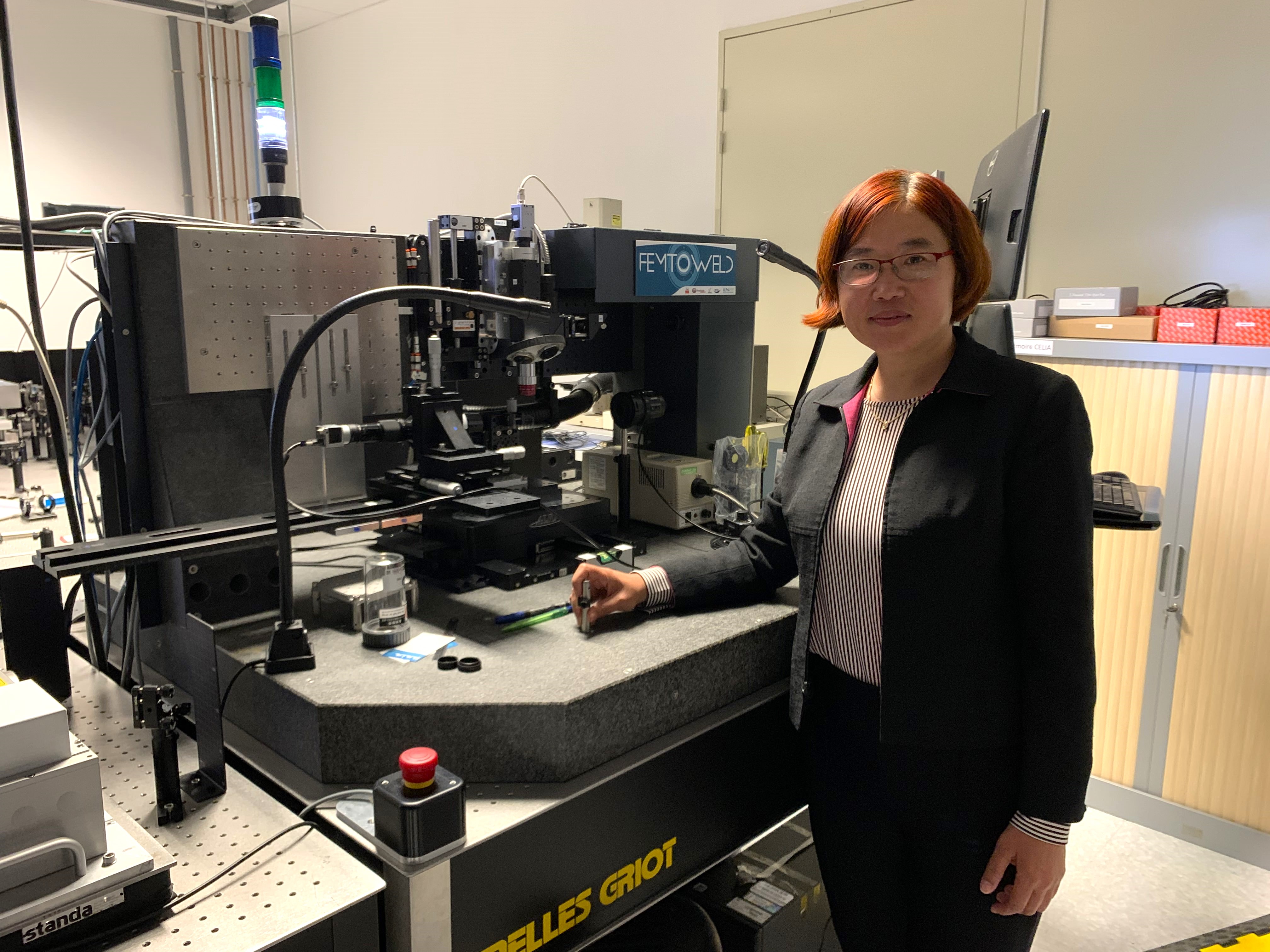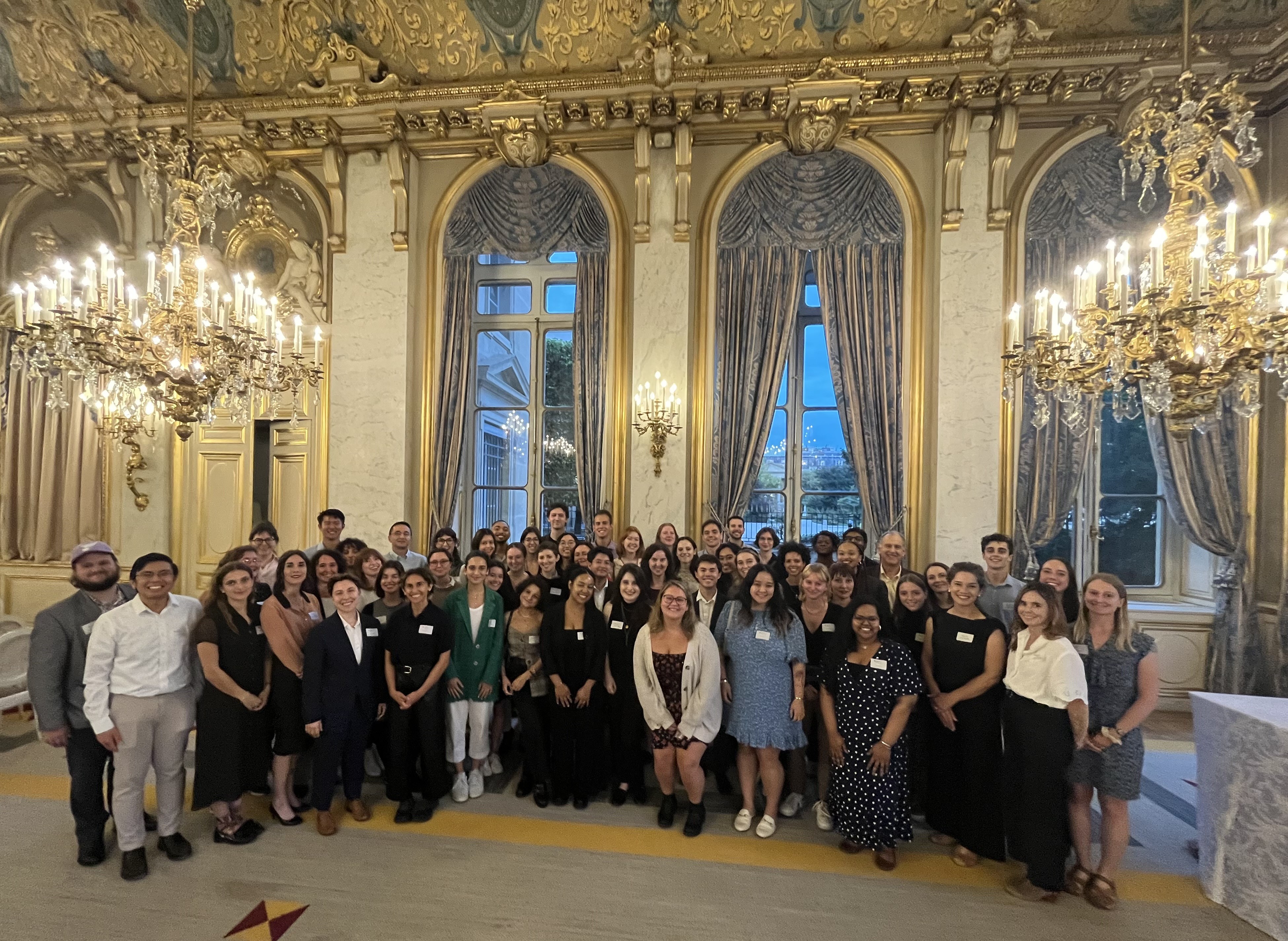Fulbright Award for Research in Southwestern France (Nouvelle-Aquitaine)
France
Number of recipients
In addition to being a prestigious academic exchange program, the Fulbright Program is designed to expand and strengthen relationships between the people of the United States and citizens of other nations and to promote international understanding and cooperation. To support this mission, Fulbright Scholars may be asked to give public talks, mentor students, and otherwise engage with the host community, in addition to their primary activities.
Conduct research at any university or research center in the Nouvelle-Aquitaine region. Major cities include: Bordeaux, Poitiers, La Rochelle, Limoges, and Pau.
With 208,000 people studying in the region – about half of whom are in Bordeaux – Nouvelle-Aquitaine is especially an exciting place to be for research! World renowned for its wine, Bordeaux is also famous for the quality and number of its public institutions of higher education and research. The region boasts six universities representing 128,000 students. Nouvelle-Aquitaine is home to the major public research institutions, and out-performs the national average public scientific output by 5% (and over 7% in chemistry and applied biology-ecology).

Universities or research centers in the French region of Nouvelle-Aquitaine.
For a map and basic information about the region in English, see the following site. Grantees are expected to reside in Nouvelle-Aquitaine for the duration of the award.
Nouvelle-Aquitaine is a very popular destination thanks to its beautiful vineyards, beaches, mountains, and cultural attractions (including prehistoric sites, medieval architecture, and picturesque villages).
Nouvelle-Aquitaine welcomes candidates in all fields, preferably in the following areas in which the regional research teams are especially strong: Energy Efficiency, Storage and Use; Materials Performance and Advanced Processing; Lasers, Photonics and Optoelectronics; Quantum Sciences and Technologies; Neuroscience and Bioimaging; Immune Response to Microbial Pathogens; Biodiversity, Coastal and Ecosystems Evolution, Biogeochemistry, and Aquatic Ecotoxicology; Archaeology; African Studies; Computer Networks and Innovative Data Management; Chemistry for Health Sciences and Agricultural Raw Materials; Applied Mathematics and Modeling.
All applicants must meet the Program eligibility requirements (click to review the requirements).
You may be asked to participate in an interview as part of the in-country selection process.
Charlotte Goodwin, US Program Officer at the Franco-American Fulbright Commission
Potential host institutions include:
-Université de Bordeaux
-Université Bordeaux Montaigne
-Bordeaux INP Aquitaine
-Ecole Nationale Supérieure d'Architecture et de Paysage de Bordeaux (ENSAPBx)
-Bordeaux Sciences Agro
-Université de Poitiers
-ISAE-ENSMA
-Université de Limoges
-Université de Pau et des Pays de l'Adour
-La Rochelle Université
-Sciences Po Bordeaux
€3,000 (approx. $3,200) per month. There is no allocation for accompanying dependents. Applicants are responsible for finding their own housing, although some host institutions may facilitate the process. The Euraxess network can also help with housing and local logistics.
International travel allowance provided for grantee only. All research scholars receive a travel allowance of €1,200 (approx. $1,300).
The average monthly rent for a studio apartment in Bordeaux is 628 euros (approximately $686). A public transportation pass costs 51.80 euros per month (approximately $56).
Visa fees will be waived for Fulbright grantees and their accompanying dependents. The Fulbright Commission will provide support and guidance for the visa process.
Final grant amounts will be determined prior to the start of the academic year and are subject to the availability of funds. The United States Department of State and the Fulbright Commission in the host country reserve the right to alter, without notice, participating countries, number of awards and allowances.
France
Why France?
France has been the world's top tourist destination for over 25 years. Visitors come from all over to enjoy French cuisine, tour its famous museums and monuments, and explore its beautiful cities. More on French tourism and attractions.
The country has an excellent and accessible healthcare system, a high-quality public school system starting at nursery school, comprehensive public transportation and high-speed rail networks, and lively cultural scene.
France is also a key place to do research, teach, or pursue professional development. It is home to 72 universities, 227 engineering schools, 220 business schools, 45 state art schools, 22 architecture schools, and 3000 private institutions of higher education. Research is a high priority: 2.22% of the country's GDP is devoted to research and development. The CNRS (national scientific research council) produces the highest number of scientific publications in the world. More on reasons to choose France and the French research landscape.
Applicants can find useful practical information about life in France (housing, schooling, etc.) through the free national Euraxess network.
Being a Fulbrighter in France

Fulbright France hosts two all-grantee events every year (orientation in September and mid-year meeting in February) in Paris. Fulbrighters gather together to get practical information, meet each other, learn about important issues in French society, and explore the cultural sites of Paris. There are also other activities on offer, including conferences, informal gatherings around a galette des rois or French cheeses, and concerts from Fulbright musicians.
Candidates interested in applying can visit the Franco-American Commission's website. For more detailed information, contact Charlotte Goodwin, US Program Officer at the Franco-American Fulbright Commission, at cgoodwin@fulbright-france.org.
Quotes from Fulbright scholar alumni:
"My fellowship helped me establish new connections and cement existing research collaborations with French scientists and their students in a substantial way that will carry forward for at least the next decade. The program also gave me a new window into the graduate education of French students that I will bring back to my home institution and that will benefit them and future exchanges that will occur. Finally, the experience gave me, and my family a much more detailed picture and appreciation of France and its people with new insights into its history and prehistory, people, and society."
"I refer to this year as the 'magical year' because I was able to focus on my research, to make enduring connections with researchers based in France, to drastically deepen my ability to work in French, and to enjoy my daily life in a way I often find impossible while I’m in the midst of a full semester of teaching, administrative work, and meetings at my home institution. I came to better understand French academia and to build professionally meaningful relationships at my host institution. I was a citizen of a city, a member of an institution, and a speaker of a language in which I was immensely happy."
“The Fulbright program enabled me to develop several completely new avenues of research that would have been absolutely impossible without having this extended time to be in residence in my French host lab. On a personal level, Fulbright enabled me and my family to have a fascinating and immersive year in European culture that will especially benefit our kids for decades to come.”
Fulbright France has an active YouTube channel with many interviews of Fulbrighters past and present: https://www.youtube.com/user/ComFulbrightFR.
Visit our Scholar Directory to view and search all Fulbright alumni. You can also learn more about Fulbright Alumni Ambassadors.

Quotes from previous Fulbright-Nouvelle-Aquitaine grantees:
“My Fulbright experience has been way beyond my expectations. My new colleagues have been excellent collaborators, very welcoming and open to new ideas. The work we have begun will continue to expand and transform my career, including permanent affiliation with the host institutions and lasting friendships.”
“My Fulbright experience has been indescribable in its growth impact. I’ve had to stretch my scientific muscles to their limits and this has led to significant new ideas and goals that will become an integral part of my laboratory in West Virginia. The planned, extended collaborative efforts with my host research group will not only benefit me and my institution but also a whole field by stimulating many young scientists to come.”
“My Fulbright research experience provided an incredible opportunity to not only connect and conduct work with my hosts but also gave the chance to meet many other scientists and students doing excellent research. By studying the French coast, it made me understand how we have many similar problems but also important differences, so this highlighted how having local and global perspectives are critically important. By embracing the scientific and social culture, I was able to see, do and learn much more than I imagined, and this will be invaluable for my professional and personal growth for years to come.”